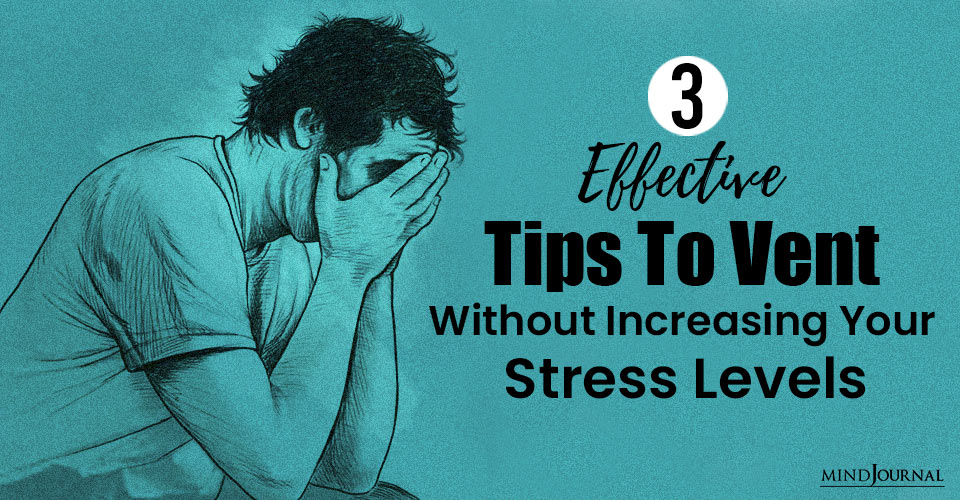Have you vented about an unrealistic deadline, or griped about a passive-aggressive client email to a colleague today? More than once, perhaps? Is it possible to vent without increasing your stress levels?
It can be helpful to find an outlet to let off steam, but there’s an important catch.
According to research by Kristin Behfar, Ph.D., formerly of the Darden School of Business at the University of Virginia, we complain to our co-workers or hear others vent to us, four times a day on average. The urge to let off steam when we’re stressed may be universal, but it’s not always clear whether doing so actually helps our stress levels, or feeds them instead.
In a review of three studies recently published in Academy of Management Discoveries, Behfar, now a professor of strategic leadership and ethics at the United States Army War College, offers new insights on the pros and cons of venting.
The takeaway: Venting may feel cathartic in the moment, but it also risks worsening your mood and spreading it to others — though there is a silver lining that venting constructively can help you move past the negativity instead of getting swept up in the heat of the moment.
Keep these tips handy the next time the urge to vent arises.
1. Share your frustrations with a challenger-listener
When you’re upset, you’re inclined to turn to a friend who will empathize and affirm that the pain you’re feeling is valid. But this reactive dynamic isn’t very conducive to working through the problem. To keep the conversation productive, Behfar and her co-authors suggest engaging with a challenger-listener, someone “who challenges the venter to reappraise and get to the root of the problem.” These people gently nudge you out of your own head and self-serving logic to help you see the situation more objectively.
So if you’re miffed that your manager passed you over for a big assignment that’s right up your alley, a challenger-listener might prompt you to consider her perspective and other potential factors of the decision that have nothing to do with you or your capabilities.
Read How Healthy Thinking Techniques Can Help You Deal With Your Problems Better
2. Label your feelings
Our feelings are complex, multidimensional, and often overlap with one another, and it can be helpful to talk through them to make sense of it all. But to avoid getting caught in a cycle of co-rumination with your co-worker, frame the conversation as an investigation.
The goal: to get to the bottom of what you’re really feeling. Break down broad, sweeping emotions into smaller, more specific ones, a practising neuroscientist and psychologist Lisa Feldman Barrett, PhD, calls emotional granularity.
Her work has found that what we think of as anger is actually a wide cluster of feelings, and often a manifestation of a deeper hurt. So instead of complaining, “I’m so mad,” pinpoint the underlying emotions, such as “let down,” “impatient,” “betrayed,” or “unappreciated.”
Read How Knowing Your Myers-briggs Personality Type Can Help You Feel Less Stressed in Life
3. Have a solution at the ready
No one likes being on the receiving of someone who’s wallowing in their own self-pity, so to avoid this perception, pair your complaint with a tangible action you plan on taking. “Problem-solving makes you feel better, but getting things off your chest alone doesn’t make you feel better,” Behfar advises.
Practice coming prepared with a solution for every complaint, just as you would with your boss, to show your colleague that you’re thinking proactively and aren’t just complaining for the sake of complaining.
And that’s the right way to vent without increasing your stress levels.
Please share this article with anyone who you may think will find it valuable and helpful.
Written by: Mallory Stratton
Originally appeared on Thrive Global
Republished with permission










Leave a Reply